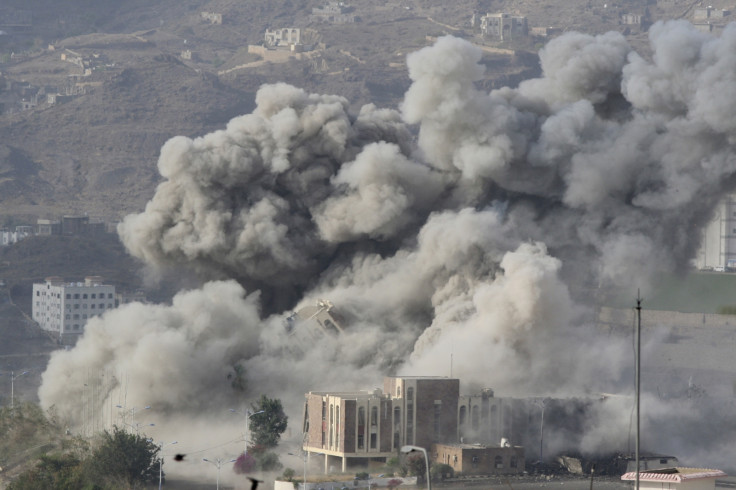Yemen: Saleh to stay put as coalition blitzkrieg continues

Yemen's former president Ali Abdullah Saleh has dismissed Arab media claims that he was seeking a safe passage for him and his family out of the embattled nation.
Saleh said he would not leave the country, now three weeks into an air assault under a Saudi-led coalition fighting the Houthi rebels and militia loyal to Saleh.
Intense bombing by the Saudi-led coalition continued in Yemen with over 100 sorties launched in 24 hours against "specified" Houthi targets.
Amidst the air blitzkrieg, al-Qaeda militants helped themselves to heavy weapons from a key army camp captured on Friday (17 April).
The army camp in the Hadramawt provincial capital Mukalla which had remained loyal to President Abd-Rabbu Mansour Hadi, was taken without resistance, according to eyewitnesses.
The air strikes also hit the presidential palace in the southern city of Taez, with coalition spokesman Brigadier General Ahmed al-Assiri confirming the same.
The United Nations, meanwhile, said about 150,000 people had been driven from their homes and more than 750 people killed.
The Saudi-led coalition began its air campaign on 25 March after the Houthi rebels, who captured capital Sanaa in September closed in on the southern port city of Aden and forced the Saudi-backed Hadi to flee to Riyadh.
Saudi Arabia sees the rebels as proxies for regional Shiite powerhouse Iran seeking to destabilise the region.
Tehran has denied any role and has so far restricted itself to denouncing the coalition action in Yemen and sought an all-inclusive government through intra-Yemeni dialogue and free from "foreign meddling".
Iran has volunteered to mediate peace in the region and proposed a four-point plan emphasising the Yemeni nation's right to decide its own future.
© Copyright IBTimes 2024. All rights reserved.





